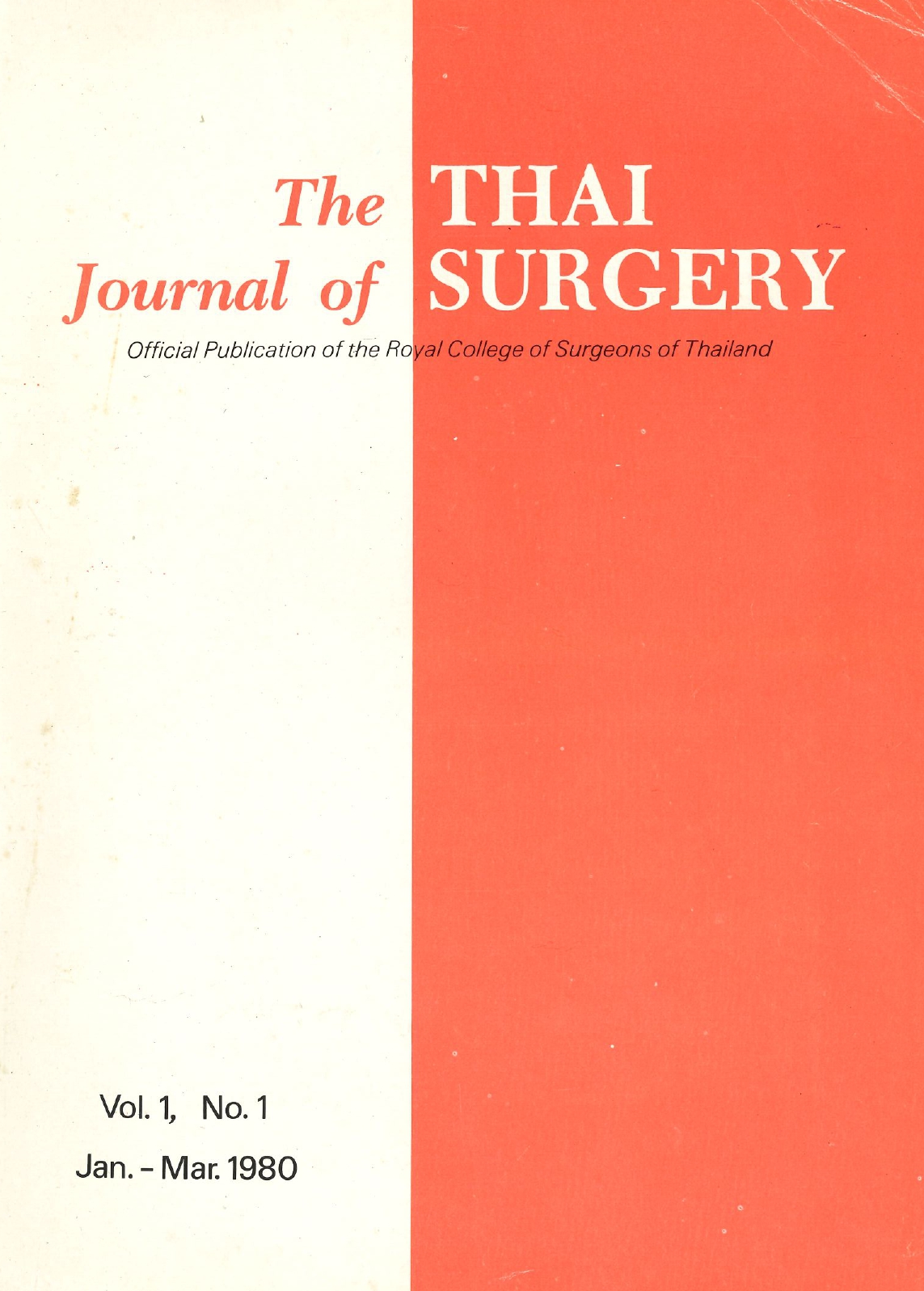Urological Problems in Thailand
Abstract
When the first public "Siriraj Hospital" was set up 90 years ago by King Rama V, the type of medical treatment was a combination "traditional" and "western" medicine. Those very first groups of patients consisted of chronic ulcers, dysentery, malnutrition, bone and joint deformity. Herbal medicine was commonly practiced at that time, and empirical treatment was not uncommon. In the field of Urology, the patient with bladder stones was treated with a solution of "crushed stone" and of course the result of the treatment was unknown. Several decades later, medicine in Thailand was modernized, major surgery and anesthesia had become common practice in the hospitals. Surgery for urinary stone disease had been performed by pioneer urologists, Dr. Samai and his pupils. The elderly patients suffering from prostatic obstruction could survive longer with successful prostatectomies done in two stages. Since the second World War medicine has progressed rapidly. Modern urological and x-ray equipment have been developed, many Thai Medical Graduates have gone abroad for specialized study in Urology, and fortunately most of them returned to work in their home towns. The local training for physicians although, done unofficially for years, has recently been recognized by the medical council. This resulted in the establishment of a 3year-residency training program in Urology (one-year surgical resident and two years urological resident) in April 1977. With modern technology, such as computerized tomogram (x-ray scanning machines), sophisticated resectoscope and electrohydraulic lithotrite, there are still the old problems of urology in Thailand, the problems which will need an energetic, devoted person to solve, and still the results are not yet certain.
Downloads
Published
How to Cite
Issue
Section
License
Articles must be contributed solely to The Thai Journal of Surgery and when published become the property of the Royal College of Surgeons of Thailand. The Royal College of Surgeons of Thailand reserves copyright on all published materials and such materials may not be reproduced in any form without the written permission.



